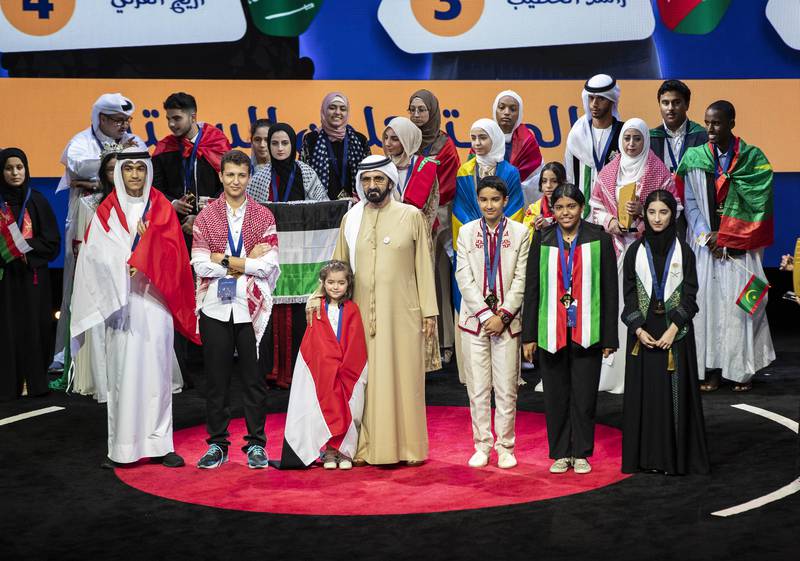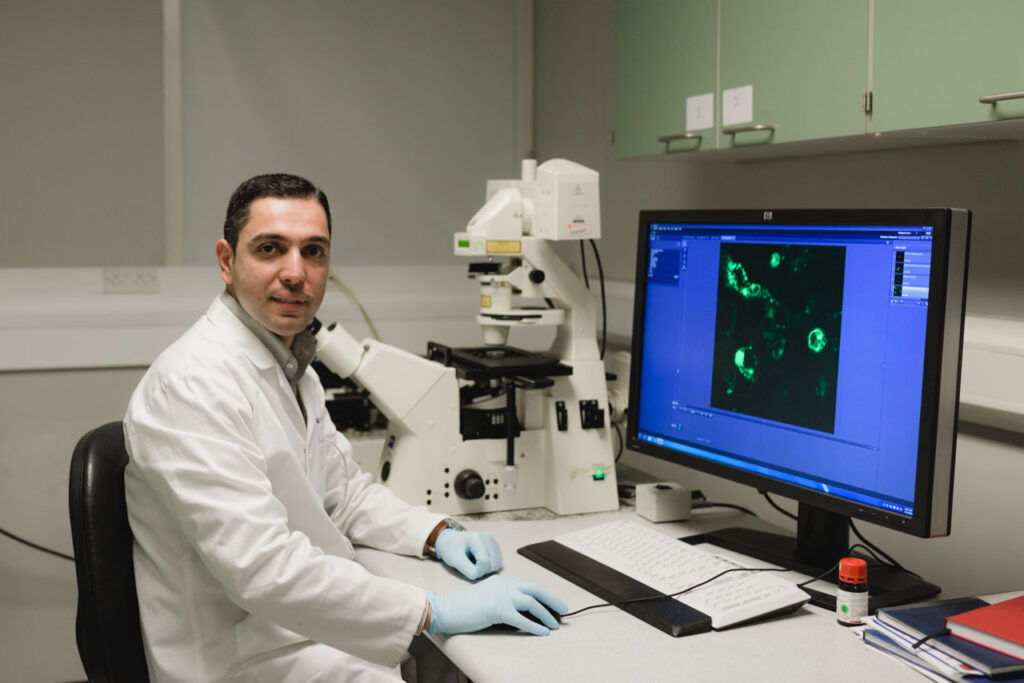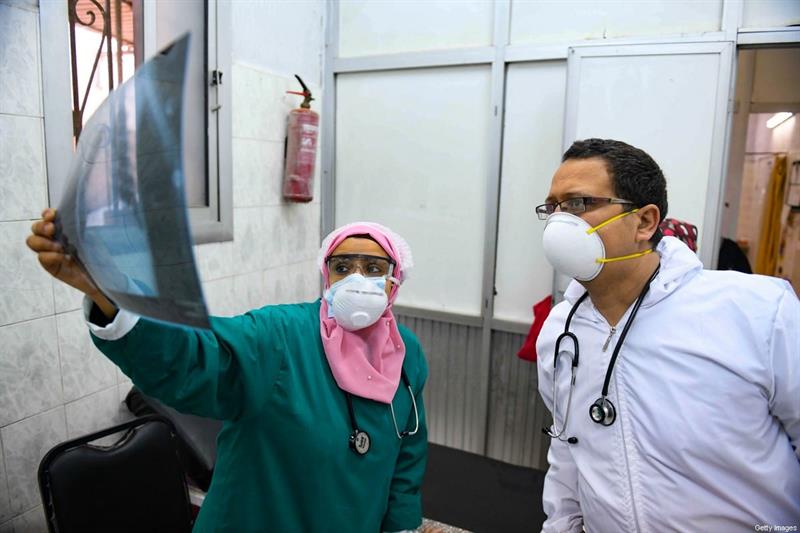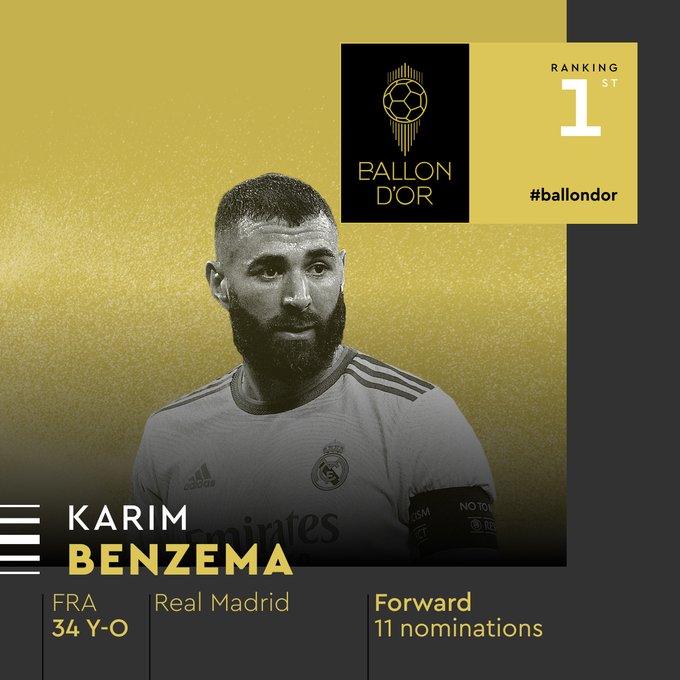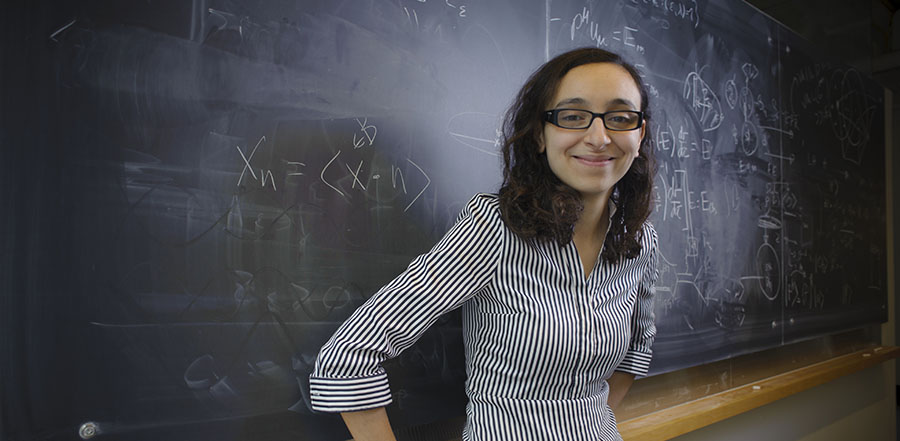When the young George Kanaan wasn’t helping out in the family businesses, he was often to be found in a village classroom analysing the Shakespearean concepts of destiny and fate. His own was to take the helm of the Arab Bankers’ Association.
From the age of 8, the bell at the end of each school day sent George Kanaan wending purposefully through his ancient village in Mount Lebanon to pitch in at the family grocery store and builder’s merchants.
His father, Elias, spent the mornings running a wholesale business from the port before heading 20 kilometres south-east of Beirut to Souk El Gharb, where the young George would help to buy tobacco supplies or oversee the loading of bags filled with cement.
“To think I was a grocer’s son,” Mr Kanaan, now 76 and the chief executive of the Arab Bankers’ Association in London, tells The National.
It was an idyllic childhood that has left him full of memories of playing safely with his brothers, Pierre and Adel, on quiet streets in the shadows cast by the pine trees of the Aley district.
The cooler climes of the prosperous resort were popular with wealthy outsiders seeking respite from the humid countries of the Arabian Gulf – the kind of high society that Mr Kanaan would subsequently spend decades working for and with.
These days, accompanied by his second wife, Soulaf, he spends 60 per cent of the year at ABA’s head office in Mayfair, rubbing shoulders with the banking elite, and the rest reconnecting with his roots at the office in Beirut.
But ask him if he considers himself Lebanese or British, and he retorts: “I’m more English and Lebanese. I don’t like to say which one as I am equally part of both cultures and I like both completely.”
The dual curriculums at his secondary school, set up by western missionaries, focused heavily on discipline and English literature, which is how he came to study Macbethat the age of 15.
“There is no better way of identifying with a culture than identifying with one of its greatest literary figures,” Mr Kanaan says.
“To some extent, we lived with Shakespeare. We had to concentrate on one play, remember it by heart and be able to write analyses of concepts like destiny and fate. By the time we left school, we were seriously educated.”
He credits the influences of both parents for standing him in good stead in life. His mother, Rose, a French school teacher until she married, ensured that her three sons worked hard academically while his father encouraged their entrepreneurial skills.
So much so that when a professor at Harvard Business School asked his MBA students how to prepare a business bid, Mr Kanaan drew upon Elias’s success at winning an annual contract to supply the French army with food.
“When the professor called on me to open up the discussion, I told him how to do it. He looked at me completely stunned, then said: ‘First, what should we do with the rest of the 80 minutes, and second who told you this kind of stuff?”
Mr Kanaan read civil engineering at the American University of Beirut for four years, with his studies including summer internships in the mountains learning surveying work, and driving tractors and bulldozers.
He was awarded a fellowship to take a master’s in civil and environment engineering at Carnegie Mellon University in Pittsburgh, a city that shattered the idolised perceptions of the US built up by the Hollywood movies he watched as a child.
“If you turned on the taps in Pittsburgh, the water was yellow,” he recalls. “If you opened the window of the dormitory, you died of the smoke from the steelworks, and if you swam in the rivers you spent two weeks in hospital because the water was so polluted.”
Despite the disappointment, the course led to a job working at the think tank The Eno Centre for Transportation, which later netted him an invitation to Harvard Business School in 1973.
But his time at the prestigious institution coincided with a deterioration in his father’s health. When Mr Kanaan confided in his professor a desire to return to Beirut, the academic secured him a job at Citibank.
By then he was married to Catherine Sloane, an American he met during a French speaking class in 1970, and the mother of his now three grown-up children, Zizi, Elia and Danny.
With the move to Beirut imminent, Catherine went ahead to make preparations, arriving on the fateful day of April 13, 1975, when two sectarian incidents outside the Church of Notre Dame de la Delivrance – a drive-by shooting and a retaliatory bus attack – became the sparks that set off the civil war.
As the crisis deepened, the family instead relocated to Athens, where Citibank moved its regional base. But it meant that Mr Kanaan never had a chance to say goodbye to the father he had so admired.
“I discovered weeks later that he died. My family kept it from me because things were uncomfortable in the country and they did not want me to rush back.”
It has been difficult watching Lebanon and its many struggles since. The country is barely recognisable as the one of his youth when he used to read the parliamentary debates – published verbatim in the newspapers – to his father, whose eyesight was failing.
“He took great pleasure listening to me. I remember how intently and carefully he followed the minutes,” he says. “Lebanon at the time was a very thriving democracy.”
There is a deep belief within him that the country can be brought back from the brink but that would require, he says, a political coalescence before the economy can begin to be rescued.
He wishes he could be complimentary about Lebanon’s banking system. But what was once a jewel in the economic crown has been paralysed since a collapse in 2019, when strict withdrawal limits were imposed and transfers abroad banned after decades of unsustainable state spending and corruption.
“I always thought the Lebanese were really fine bankers,” he laments, “but fine bankers don’t end up in the mess Lebanon has.
“When I ran a bank, I thought I would rather die than see any of my depositors lose a penny and to think of the calamity that has befallen people who deposited money in Lebanese banks. The financial system is a catastrophe.”
His career took him to Riyadh, where he worked in the bank’s contracting division before the financial institution became Saudi American Bank, commonly known as Samba, by royal decree in 1980.
With Arab bankers increasingly in demand, he landed a job at the London arm of First Chicago, the US commercial bank, in 1984 as executive director in charge of the Middle East and North Africa region.
“We had a ball, coming to London,” he says. “It was a senior job that paid well so they put me and the family up in a Savoy suite for six weeks. That was a nice entry into the UK.”
The family moved into a three-storey, 7,000 sq ft upper maisonette off Sloane Square, a temporary solution while a search was under way for a permanent home.
“It had a grand staircase and a living room that could accommodate 100,” says Mr Kanaan.
“We were supposed to be there for about a year but we left 14 years later. We had a fantastic time living in one of the best addresses in London, with the children studying at American School of London.”
As ever, Mr Kanaan’s career was focused on the Arab world, and within three years he was back working for Citibank to build Samba’s presence in the UK capital.
By the time he left, five years later, he had established Samba Capital Management International, a portfolio management business “with $3.5bn of funds”.
Next came a stint with Saudi Arabia’s Prince Khalid bin Sultan bin Abdulaziz Al Saud, co-commander with General Norman Schwarzkopf of the allied forces during the first Gulf War.
As the chief executive of Makshaff, Mr Kanaan divided his time between Riyadh, Geneva and London, responsible for the prince’s personal affairs, staff, luxury homes around the world, private yacht and jet.
“Working in a job like that, I’m not exaggerating when I say I had breakfast on one flight, lunch on another and dinner on the third flight,” he says. “It was non-stop.”
The long hours took their toll on his first marriage, and thoughts turned to retirement at the age of 50 but it’s hard to conceive that giving up work altogether was ever a serious option.
There were dabblings in “failed” entrepreneurial ventures, such as a restaurant chain and a financial business in Cyprus, as well as a more successful mortgage brokerage company.
He spent much time indulging his passion for amassing a personal library of books connected to the Levant, Egypt and Iraq, with a preference for writings about the region by Europeans.
“I have a phenomenal collection – 1,000 books from the 1500s onwards – and some are so rare,” Mr Kanaan says.
Perhaps unsurprisingly for a former banker, another enthusiasm is for old paper money, the acquisition of which he equates to philately except that notes are larger than postage stamps and carry more historical information.
“I started in 1985, collecting anything Arabic, but it became too unwieldy. So I sold everything not from Lebanon, Syria and North Africa at an auction about 10 years ago. I made so much money, it’s a joke.”
Mr Kanaan’s return to the banking sector came in 2009, when asked to head the ABA as the world was dusting itself down from the global financial crisis.
The association was set up in 1975 when bankers running regional offices in Beirut flocked to London to escape the civil war. These Palestinians, Egyptians, Syrians and Iraqis brought with them regional expertise as well as contact books filled with the names of central bank governors, and oil and finance ministers.
“With that knowledge, they became the most sought-after people in the world because they had access to key people in the Arab region – which was not as accessible as it is now.
“Lunches at the association became really quite important, the place to meet if you wanted to do anything with the Arab world. There was a lot of business to be done because the price of oil had gone through the roof and the money was flowing like you would not believe.”
But things had begun to change by the time that Mr Kanaan was sitting on the board during his years at Samba. The term “Arab bankers” itself had become a thing of the past. The bankers were now British, American, Indian, Pakistani, whose careers concentrated on the Arab world.
When Mr Kanaan took the helm, the evolution went further as the ABA became a professional body connecting anyone with an interest in the Arab banking sector, not only Arab bankers themselves.
Now, the Arab Banker magazine has been revived, the website revamped, and membership expanded beyond Arab banks to include global institutions such as HSBC, BNY Mellon along with service providers like law firms, auditors and consultants.
The events calendar is still full but has pivoted to professional content about property, financial crime or trade finance with speakers from the Financial Conduct Authority or the Central Bank invited, while the social side burgeons with iftars, Christmas parties and gala dinners.
For the grocer’s son whose work ethic was first instilled as an 8-year-old, there seems little sign yet of Mr Kanaan putting his feet up.
“It’s a full-time job but this kind of work is fun,” he says. “The members are my friends, and I’ve been in this industry for more than 40 years, so why retire?”
source/content: thenationalnews.com (headline edited)
_____________
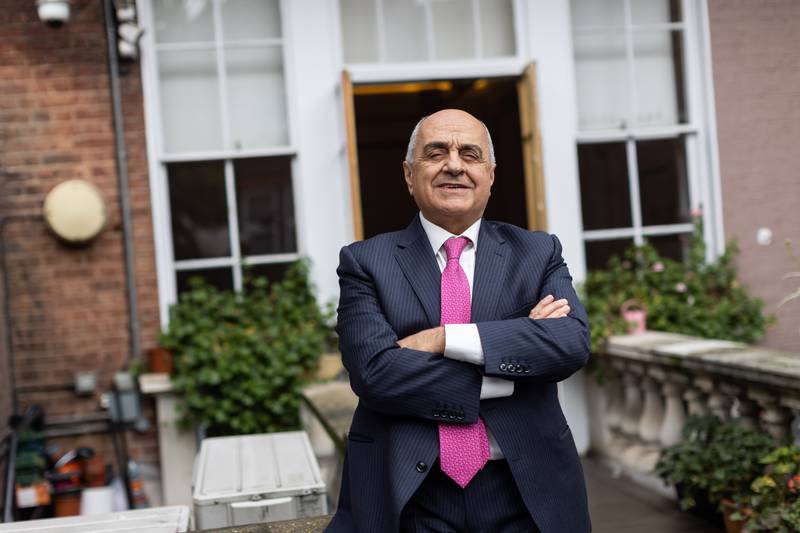
______________________
BRITISH / LEBANON
